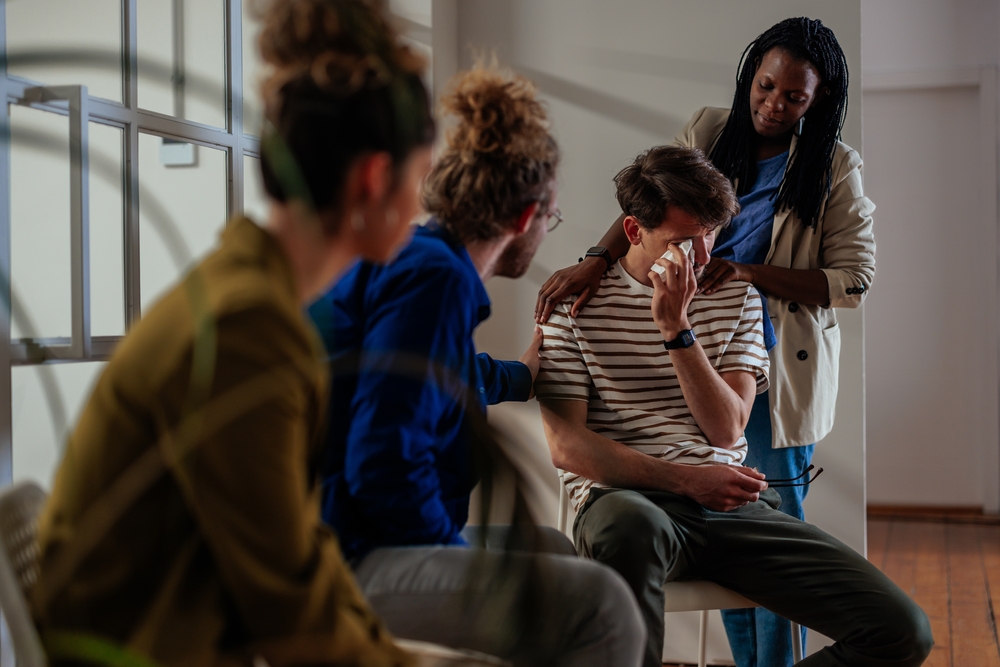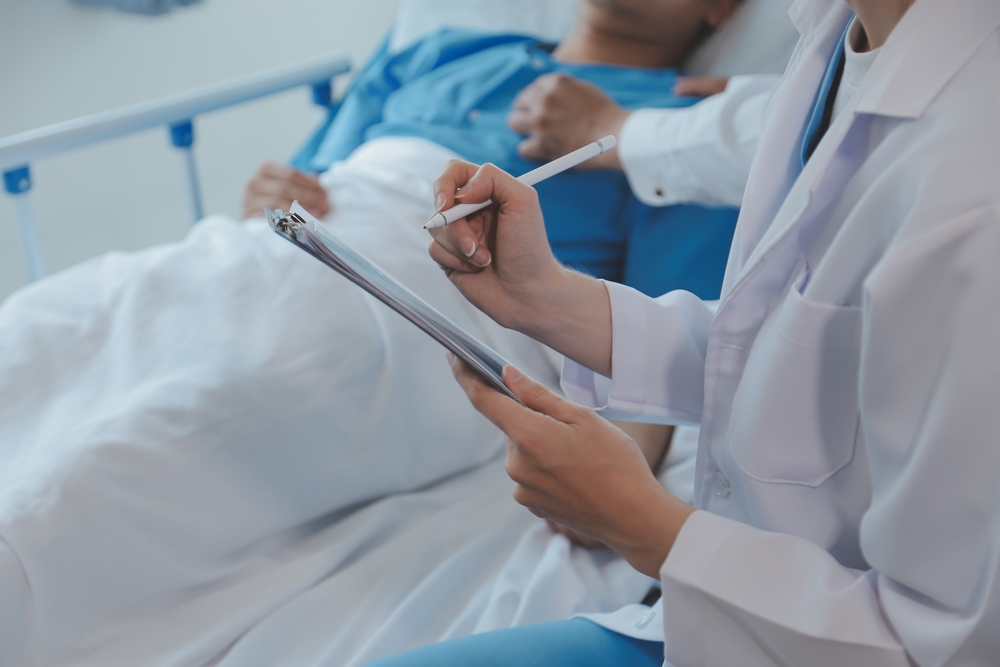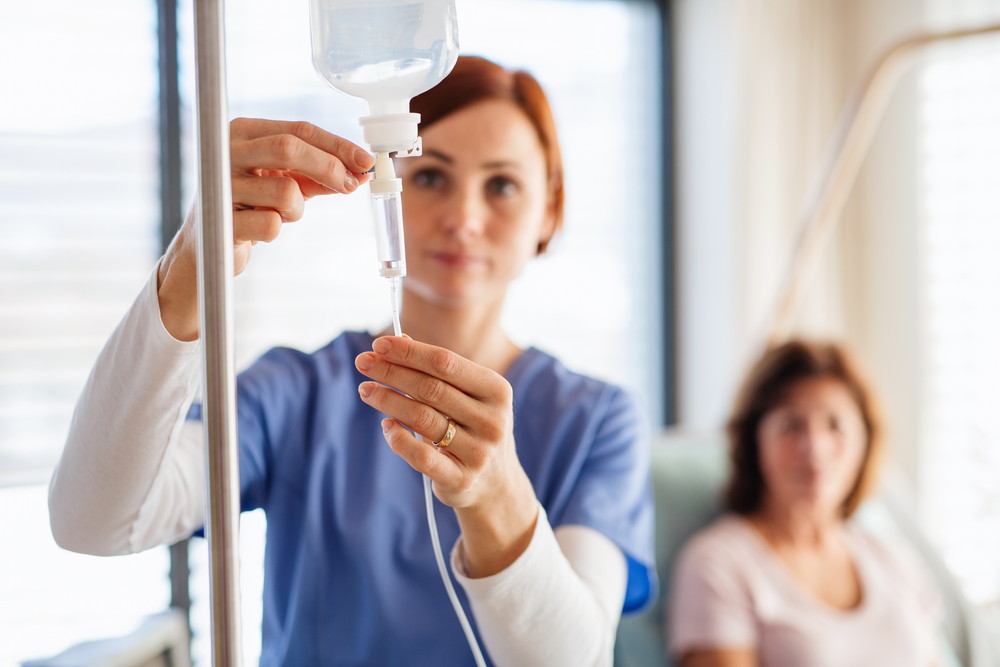Finding the Right Level of Care for Addiction Treatment
When a client commits to an alcohol or substance use rehabilitation program for the first time, the choices might seem a bit bewildering. But while basic models like 12 Step programs have helped millions of people, there are actually have many levels of care to choose from. Depending on their needs, clients can have 24/7 medical detox supervision, or visit an outpatient counselor as little as once a week.
If you’re not sure about which treatment program is the perfect fit for your needs, the best way is to do a little research on rehab models and the continuum of care in addiction recovery.

Each program varies, but they all follow the same guidelines laid out by experts in the American Society of Addiction Medicine (ASAM). ASAM has created categories for different levels of care, which helps clients and their healthcare providers track their continuum of care throughout their recovery.
The ASAM Criteria for continuum of care has several stages, depending on the severity of the client’s addiction. Each level further divides into subcategories. Not everyone will fall into the same levels; adult treatment programs might vary from adolescents or seniors. But the basic structure for all clients remains the same.
Level 0.5: Interventions

The lowest level of care for addiction treatment consists of intervention services. If a client is at risk of developing an addiction but has not yet been formally diagnosed, an intervention can serve as a “wake-up” call to prevent the client from falling deeper into dependency.
An intervention can take place in a variety of ways. Professional counselors and interventionists can intercede with the client at their home, a clinic, the workplace, or at neutral public or private spaces. Interventions usually consist of education and awareness programs and motivational interviews. Family members may also be present to lend support and even suggest alternatives to curb the client’s substance use disorder.
Level 1: Outpatient Rehab

Outpatient drug rehab is the least intense level for clients who have a formal diagnosis of chemical dependency. Clients in outpatient care do not require 24/7 supervision, and their dependency on alcohol or drugs might be relatively moderate or mild. Nevertheless, these clients need formal monitoring, such as from a counselor or a structured peer support program. Treatment generally lasts up to 9 hours per week. Treatment can take many forms, from individual and family therapy to more holistic treatments, such as outdoor exercises, yoga and acupuncture, and light medication.
Clients in outpatient care typically have a stable home environment, where the risks of relapse are low. Family members offer support and clients generally do not face overwhelming pressure from their personal or professional lives. The cost of outpatient treatment can vary depending on the facility, the location, and the client’s individual needs. The average cost for adult rehab in the US, however, is more than $7,200 per person, according to the National Center for Drug Abuse Statistics (NCDAS).
Online Rehab & Teletherapy

Online Rehab is a fairly new development in aftercare. While technically a form of outpatient service, online rehab can continue a client’s counseling after they graduate from a program. As its name states, online rehab offers flexibility and anonymity; depending on the platform, a client might schedule an anonymous appointment to ask questions and seek assurance about their recovery. Or, it can be more formal, with regular visits and group sessions. Some smaller online clinics may use Telehealth or popular platforms like Zoom for meetings, while larger centers may have their own web portals and offer opportunities to network with other clients while promising privacy and confidentiality.
The American Journal of Psychiatry has observed that online rehabs have increased since the COVID-19 pandemic. While the online rehab industry is still in its infancy, it has opportunity to grow as digital access and technological recovery tools, including games and personalized apps, develop.
Level 2: Intensive Outpatient & Partial Hospitalization

The next stage in terms of care includes intensive outpatient and partial hospitalization. Partial hospitalization is a transitionary care between outpatient programs and inpatient hospitalization. The National Library of Medicine defines partial hospitalization as an outpatient program that offers hospital-level services for clients who do not need overnight supervision. Clients attend day programs in a hospital setting, receive services such as medication, lab work, and other benefits, but leave after several hours of treatment. Program lengths generally consist of more than 20 hours per week.
According to NCDAS, the average cost of intensive outpatient and partial hospitalization services can range from $10,000 to more than $17,000 at a private care facility over a 30 period.
Level 2.1 Intensive Outpatient
As its name suggests, intensive outpatient programs require a stronger commitment from clients to participate in therapy. Their treatment can range from 9 to 19 hours per week and can include night and weekend sessions. Counseling sessions might also have a greater focus on clients’ addictions, motives, and underlying mental and behavioral health.
Intensive outpatient programs and partial hospitalization include more structure than general outpatient care due to the severity of their disorder. However, like general outpatient programs, clients have stable home environments and support to reduce the chances of relapse.
Level 2.5 Partial Hospitalization
For partial hospitalization programs, clients can even save costs by not having an overnight stay; however, clients with financial concerns should not prefer partial hospitalization as a money-saving program. The client’s case management team determines whether a client is eligible for partial hospitalization or inpatient care.
Level 3: Inpatient & Residential Treatment

Clients who have a severe dependence on alcohol or drugs or have a high risk of relapse outside their treatment programs may warrant the third level of care. Inpatient rehab programs offer clients 24/7 supervision and monitor their health and wellness during recovery. Clients become full-time residents at their treatment facility and may share living spaces with a roommate, receive meals, and participate in group activities throughout the day, in evenings, and on weekends.
Residential care is among the most expensive treatment levels, with an average cost of $12,500 for a 30 day program and up to $60,000 for a 60-90 day program, per the NCDAS.
Level 3.1 Clinically Managed Low-Intensity Residential Services
The lowest level of inpatient care, Level 3.1, consists of Clinically Managed Low-Intensity Residential Services. Clients at this level require a low level of management and do not have a high risk of relapse. Rather, these clients tend to lack a stable home environment, which necessitates residential care.
These residents tend to have an interdisciplinary team, including counselors, nurses, social workers, and recovery specialists. Counseling may focus on coping mechanisms to develop resilience from the pressures of everyday life. Life management skills, career coaching, and education courses may be included to wean the client away from substance use as a crutch.
Level 3.5 Clinically Managed Population-Specific High-Intensity Residential Services
The mid-level tier, Level 3.5, is called Clinically Managed Population-Specific High-Intensity Residential Services. Clients in this stage require a more hands on approach for the case management team, which may include private consultations with physicians and clients at this level have a deeper addiction, which may be due to co-occurring mental and behavioral health disorders. Counseling sessions tend to have a greater range of services, such as arts and music therapy, to address psychological trauma.
Level 3.7 Clinically Managed High-Intensity Residential Services
The highest tier, Level 3.7, includes clients who qualify for Clinically Managed High-Intensity Residential Services. This means that clients may have acute addictions that have severely impacted their cognitive and behavioral functioning. These clients may require active 24/7 monitoring, regular medication-assisted treatments, and a rigid structure to promote their sobriety.
Level 4: Medical Detoxification

The highest level of care consists of medical detox. At this stage, clients require 24/7 medical and nursing care to fulfill basic activities of daily living. Clients at level 4 often need to undergo medical detox in an acute psychiatric hospital setting to safely remove all substances from their body systems to begin recovery. The care team provides monitoring and treatment, such as medication management, to reduce withdrawal symptoms and prevent potentially serious medical complications. As clients experience detox, physicians, nurses, and support staff address any cognitive, emotional, physical, and behavioral distress.
Given the intensity of care required during medical detox, treatment costs can be significant, ranging from as little as $250 to more than $800 per day, according to NCDAS.
In addition to detox, level 4 clients also begin counseling and recovery education programs. The Department of Drug and Alcohol Programs lists intensive individual and group therapy, health education programs, and motivation enhancement initiatives as good starting points for a level-4 recovery. Once clients have stabilized, they can transition into an inpatient or outpatient program, depending on their need.
No matter the program you select, remember: you’re not alone. The Substance Abuse and Mental Health Services Administration (SAMHSA) has reported that of the 29 million adults who admitted to having or once had a substance use disorder, over 72% consider themselves to be fully recovered or are currently recovering from their dependency. Treatment is not easy, but millions of individuals have successfully beaten their dependencies.
Treatment Beyond the Care Continuum
Once you wrap up your program, that doesn’t mean that your recovery ends. Unfortunately, the threat of a relapse is high. According to the National Institute on Drug Abuse, about 40-60% of people who get off drugs end up relapsing. This is partially due to a misconception that clients can be “cured” of their addictions. While they can certainly manage their conditions, there is no actual cure, and temptation is always present.
But that doesn’t mean that there’s no hope. Recovery services often provide assistance even when you graduate from their programs. Here are some typical examples of care that are available for clients who are transitioning back to their communities.
Rehab Aftercare Services
Rehab aftercare is the most common service that extends your care continuum, but there is no single definition on what is included. Often, aftercare can be as simple as continuing your AA or NA program that was started during your treatment. Aftercare can also include an organized alumni association from your provider. You’ll stay in touch with your cohorts, attend reunions, and meet to share updates and new experiences. Depending on the program, alumni groups may have no additional charge and last indefinitely. An alumni group can be an effective reminder of your commitment to recovery.
Sober Living & Recovery Residences

Sometimes, a recovery program might not be enough to instill confidence to avoid the temptation to relapse. For those who need more structure, sober living programs are one effective option for oversight after your program ends. The term “sober living” is a bit nebulous; it can be called transitional housing, a halfway house, or a recovery residence.
Whatever the name, they have the same purpose: to extend treatment, as clients join other residents to attend group sessions, attend AA meetings, and undergo screenings. House rules are stringently enforced by residents and/or house monitors to help clients develop healthy daily routines and interact with others. These rules can include curfews, chore and cooking schedules, and performing maintenance around the property. Conversely, clients often grow close to each other, attend community events, and reinforce their commitment to sobriety.
A treatment program might have its own sober living program, or they can refer you to one near your community. While sober living often takes place in houses, apartments, and other residential abodes, they’re strictly regulated by state and local laws.
- Level 0.5: Interventions
- Level 1: Outpatient Rehab
- Online Rehab & Teletherapy
- Level 2: Intensive Outpatient & Partial Hospitalization
- Level 2.5 Partial Hospitalization
- Level 3: Inpatient & Residential Treatment
- Level 4: Medical Detoxification
- Rehab Aftercare Services
- Sober Living & Recovery Residences
Specialty Treatment Options

Medical Detox
Medical Detox: Cost, Timeline, & What to Expect For those struggling with substance abuse, medical detox is a critical step

Inpatient Drug Rehab
Inpatient Drug Rehab: What to Expect & How Much it Costs According to the National Center for Drug Abuse Statistics

Outpatient Drug Rehab
Outpatient Drug Rehab: Treatments, Cost, & How to Choose If you or a loved one is dealing with a drug